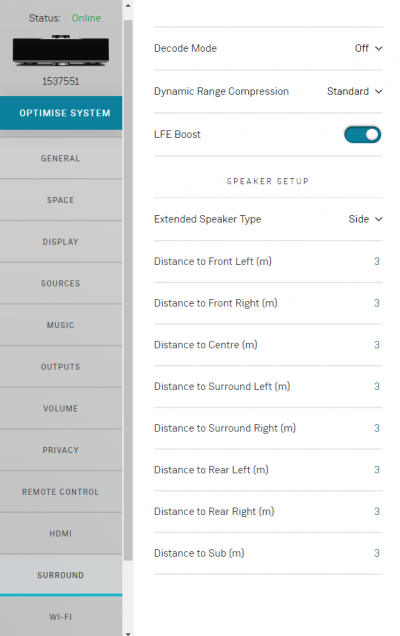Difference between revisions of "User:Yoda/Sandbox"
m |
m |
||
| Line 10: | Line 10: | ||
{{:Surround:Dynamic_Range_Compression}} | {{:Surround:Dynamic_Range_Compression}} | ||
|- | |- | ||
| − | ||<b>Speaker size (Large/ | + | ||<b>Speaker size (Large/Small)</b> |
:To define the <b><u>Surround playback</u></b> loudspeaker size. | :To define the <b><u>Surround playback</u></b> loudspeaker size. | ||
